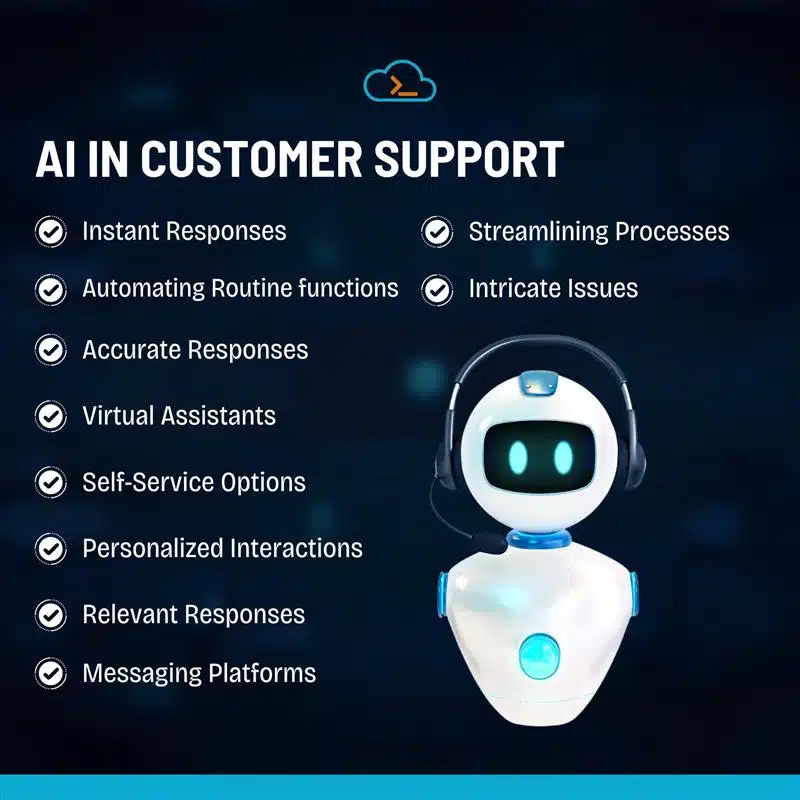
The Role Of Data Analytics In E-Commerce Customer Support
Data analytics has strategically revolutionized the e-commerce industry, providing actionable insights that help businesses optimize customer support, marketing strategies, and overall business performance. In the face of fierce competition, leveraging the influence of data to understand customer behavior and improve services is not just crucial but forward-thinking. Data analysis improves the customer experience while also increasing client satisfaction and retention rates. It plays a significant role in e-commerce customer support and impacts marketing tactics, inventory management, and business metrics. It also addresses the key questions around its importance and the role of data scientists in this evolving field.
Key Takeaways
- Enhanced Customer Experience: Data analytics improves customer service by revealing insights into behavior and preferences, enabling personalized support and quicker issue resolution, leading to higher satisfaction and retention.
- Optimized Marketing Strategies: Leveraging data insights allows e-commerce businesses to create targeted marketing campaigns, optimize pricing, and manage inventory effectively for greater impact.
- Proactive Issue Resolution: Analytics tools identify common pain points, enabling businesses to refine strategies and address issues before they escalate, enhancing overall customer satisfaction.
Data Analytics In E-Commerce Customer Support
Data analytics is essential for improving customer service in e-commerce. By examining data, companies can uncover important insights into customer behavior, preferences, and buying patterns. Understanding these patterns enables companies to provide personalized support, improve response times, and resolve customer issues more efficiently.Personalized Customer Support
Data-driven insights allow businesses to tailor their customer support strategies empathetically according to individual preferences. Analyzing historical data, such as previous purchases or browsing patterns, helps customer support agents provide targeted solutions, improving the overall customer experience and strengthening the connection with your customers.- Faster Response Times: Predictive analytics and real-time data monitoring help businesses anticipate customer needs and potential issues before they arise. This reduces response times and increases client satisfaction.
- Identifying Pain Points: Data analytics tools like Google Analytics, customer surveys, and feedback systems allow companies to identify common customer pain points. E-commerce businesses can then address these concerns by refining their customer service strategies, optimizing processes, and enhancing communication channels.
Data Analytics In E-Commerce Customer Support
E-commerce businesses thrive on data-informed insights that guide their marketing efforts. Data analytics helps companies craft marketing campaigns that resonate with their target audience. By understanding customer behavior and analyzing past data, businesses can optimize their marketing plans and improve customer acquisition and retention.- Targeted Marketing Campaigns: By examining data points like purchase history and user behavior, businesses can create personalized promotional campaigns that drive higher engagement. For instance, businesses can send personalized emails offering discounts based on previous purchases, which increases the chances of repeat orders.
- Optimizing Pricing and Inventory Management: E-commerce businesses can use data analysis to optimize pricing strategies and manage inventory levels effectively. By analyzing market trends, historical sales data, and customer demand, companies can adjust pricing in real time, prevent stockouts, and ensure inventory is always aligned with customer needs.
- Predictive Analytics in Marketing: Predictive analysis allows businesses to forecast future trends, customer lifetime value, and behavior patterns. It helps in optimizing marketing tactics and allocating resources to key areas that will generate the best returns on investment.

Enhancing Consumer Satisfaction
Consumer satisfaction is the backbone of any e-commerce business, and data insights provide the analytics tool to measure, track, and enhance it. E-commerce stores can gather and analyze customer feedback through various analytics tools and surveys, giving businesses the operational insights needed to improve their services.- Tracking Key Metrics: Metrics such as consumer satisfaction scores, average response time, and the rate of repeat purchases are all essential indicators of how well a business is performing in terms of customer service. Data assessment allows businesses to track these performance indicators in real time and make adjustments when necessary.
- Improving Customer Retention: Data mining allows businesses to recognize patterns in customer behavior that may contribute to churn or dissatisfaction. It allows them to take proactive measures, such as offering personalized promotions or addressing customer issues promptly, to retain existing customers.
- Actionable Insights: The insights derived from data analysis help e-commerce businesses fine-tune their customer service strategies. By understanding common trends in customer complaints or areas where support is lacking, companies can focus on improving these areas, leading to better overall client satisfaction.
Future Trends in E-commerce Data Analytics
E-commerce Data Analytics is vital for online businesses to identify trends and gain insights from raw data. By analyzing online transactions across marketing channels, businesses can optimize inventory levels and align their strategies with business objectives, enhancing overall performance in the competitive online store. As technology continues to evolve, data analytics stands in e-commerce customer support will become even more critical. Some emerging trends include:- Algorithms in Artificial Intelligence (AI) and Machine Learning: It can streamline processes, tailor customer experiences, and deliver predictive insights.
- Real-time Analytics: Real-time data analysis enables businesses to respond quickly to customer needs and trends.
- Natural Language Processing (NLP): NLP can be used to analyze customer feedback and support interactions, providing valuable insights into customer sentiment and pain points.
Conclusion
Data analytics in e-commerce customer support is undeniable. It allows companies to utilize data-driven insights to enhance customer satisfaction, refine business strategies, and elevate overall performance. Whether stimulating pricing, managing inventory, or crafting targeted promotional campaigns, data assessment stands at the core of modern e-commerce business success. By leveraging data, businesses can not only improve customer support but also gain a competitive edge in the digital marketplace.Frequently Asked Questions
What is the use of data analytics in customer service?
Data analytics enables e-commerce companies to improve their customer support by providing meaningful insights into consumer behavior, preferences, and buying trends. It allows companies to offer personalized support, reduce response times, and more effectively address customer pain points.What is the role of a data scientist in e-commerce?
A data scientist plays an important role in e-commerce by analyzing customer data, identifying trends, and providing insights that inform business strategies. They work on optimizing marketing campaigns, improving customer service, and forecasting trends using predictive analytics.How can data analytics improve customer satisfaction?
By tracking performance indicators like customer satisfaction scores and analyzing customer feedback, businesses can identify patterns for improvement and offer personalized solutions. It leads to a more satisfying customer experience, increased retention, and loyalty.How do e-commerce businesses use predictive analysis?
Predictive analysis helps e-commerce businesses forecast trends, optimize pricing strategies, and manage inventory levels. By reviewing historical data and market trends, organizations can make educated decisions that enhance organizational performance and elevate client satisfaction.
Aparna Sushumna
About The Author…
Aparna Sushumna, a mother to a hyperactive toddler who is all over the house. I aspire to be a decent content developer. A Bachelorette of technology says my qualification but I anticipated being a singer. Thanks to the recession, I dwelled into various jobs, from coding to being a tech support executive to a help desk professional, only to conclude that there is something else I wish to do. Here I am to accomplish my profound passion for content writing. Music, nature, jewelry, beauty, mythology, life quotes, celebs, and their life, being my areas of interest.










